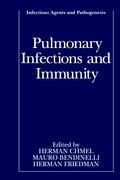DNA Methylation, Epigenetics and Metastasis
BücherAngebote / Angebote:
Most of the cancer patients die because the tumoral cells do not "stick" in the original site, but instead detach, invade and disseminate throughout the bloodstream to distal sites, where these transformed cells start to proliferate and destroy again. In the last ten years, researchers have identified a number of important genes involved in these processes, including cadherins, laminins, heparan sulfates, inhibitors of proteases and angiogenesis and many others. The puzzling problem was that few genetic alterations in these genes had been described in human tumors, despite the common finding of down-regulation. CpG island hypermethylation-associated silencing has come to the rescue of several of these genes and has situated them in the forefront of the current cancer research. However epigenetic silencing is also much more than aberrant DNA methylation, a whole set of histone modifiers and chromatin remodelling factors "conspire" to maintain the repression of these tumor/metastasis suppressor genes. DNA demethylating agents and inhibitors of histone deacetylases are the first generation of epigenetic drugs to beat them. In this book, the current directions in the epigenetics of cancer progression and metastasis are comprehensively described. It is now the turn of the reader to take care of the future. Dr Manel Esteller, Director, Cancer Epigenetics Laboratory, Spanish National Cancer Centre (CNIO) mesteller@cnio.
Lieferbar in ca. 20-45 Arbeitstagen




